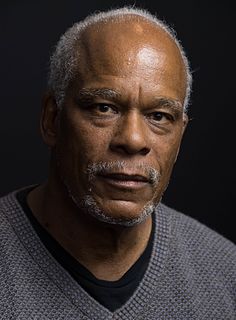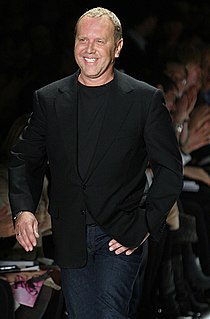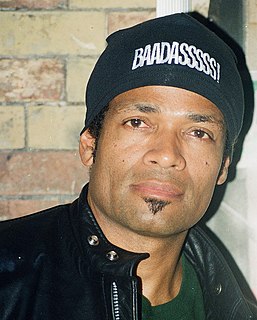Цитата Стэнли Нельсона-младшего.
Люди также не понимают, насколько молодыми были Пантеры - в основном подростками. И что среди них было более 50 процентов женщин.
Связанные цитаты
Я слышал, как люди говорят, что паттинг — это на 50 процентов техника и на 50 процентов менталитет. Я действительно считаю, что это на 50 процентов техника и на 90 процентов позитивное мышление, понимаете, но в сумме это составляет 140 процентов, вот почему никто не знает на 100 процентов, как бить.
Мне просто нравится тот факт, что обо всех моих приятелях в основном заботятся. Знаешь, у нас есть потрясающие сделки, эти ребята делят 50 процентов. У нас 50 процентов собственности, 50 процентов всех бонусов, и все будет в порядке. Итак, забегая вперед, каждый из этих проектов Millarworld, как мы их называем, на 50 процентов партнеры во всем. Так что это просто действительно счастливая среда для работы.
Мне просто показалось очень странным, что велись все эти разговоры о том, чем занимаются молодые женщины. Были ли молодые женщины слишком много секса? Были ли молодые женщины политически апатичны? Молодые женщины социально активны или нет? И всякий раз, когда эти разговоры происходили, они в основном велись пожилыми женщинами и пожилыми феминистками. И, может быть, время от времени цитировали женщину помоложе, но мы не были центральной частью этого разговора. На самом деле нам не разрешалось говорить от своего имени.
Я бы сказал, что обычное наблюдение о том, что дети не будут зарабатывать столько, сколько сейчас зарабатывают их родители, на данный момент является подбрасыванием монеты. Собираетесь ли вы добиться большего успеха, чем ваши родители? Это шанс 50 на 50, тогда как если бы вы родились в 1940-х или 1950-х годах, у вас был более чем 90-процентный шанс, что вы добьетесь большего успеха, чем ваши родители. Так что, по сути, это почти гарантия для большинства детей, что вы осуществите американскую мечту и преуспеете, чем ваши родители. Сегодня это, конечно, уже не так.
Я была молодой феминисткой в 70-х. Феминизм спас мне жизнь. Это дало мне жизнь. Но я видел, как многое из того, что люди говорили, не соответствовало тому, что они делали. Например, мы говорили о сестринской солидарности, а женщины унижали друг друга. Мы говорили о отстаивании своих прав, и женщины не отказывались от оскорбительных отношений с мужчинами. Просто было очень много отключений.
Когда молодые люди смотрят такие фильмы, как «Ганди» или «Джон Кеннеди», присутствует элемент романтизации этих влиятельных людей, и молодые люди часто чувствуют огромную дистанцию между своей собственной жизнью и жизнью этих героев социальных перемен. Но Пантеры были ущербными людьми с улиц, так что с ними легче себя идентифицировать.
Лозунг Дональда Трампа: «Сделаем Америку снова великой». И когда я это слышу, это, кажется, предполагает, что в прошлом был момент, когда Америка действительно была великой, вы знаете, когда женщины знали свое место, когда мы могли натравливать собак на чернокожих в Миссисипи, когда молодые люди ходили и сидели в за обеденными столами и подверглись нападению со стороны других. Это о смерти памяти. Речь идет о подавлении памяти таким образом, что это не позволяет людям понять, что в прошлом были вещи, которые мы не только должны помнить, но и предотвращать их повторение.



































